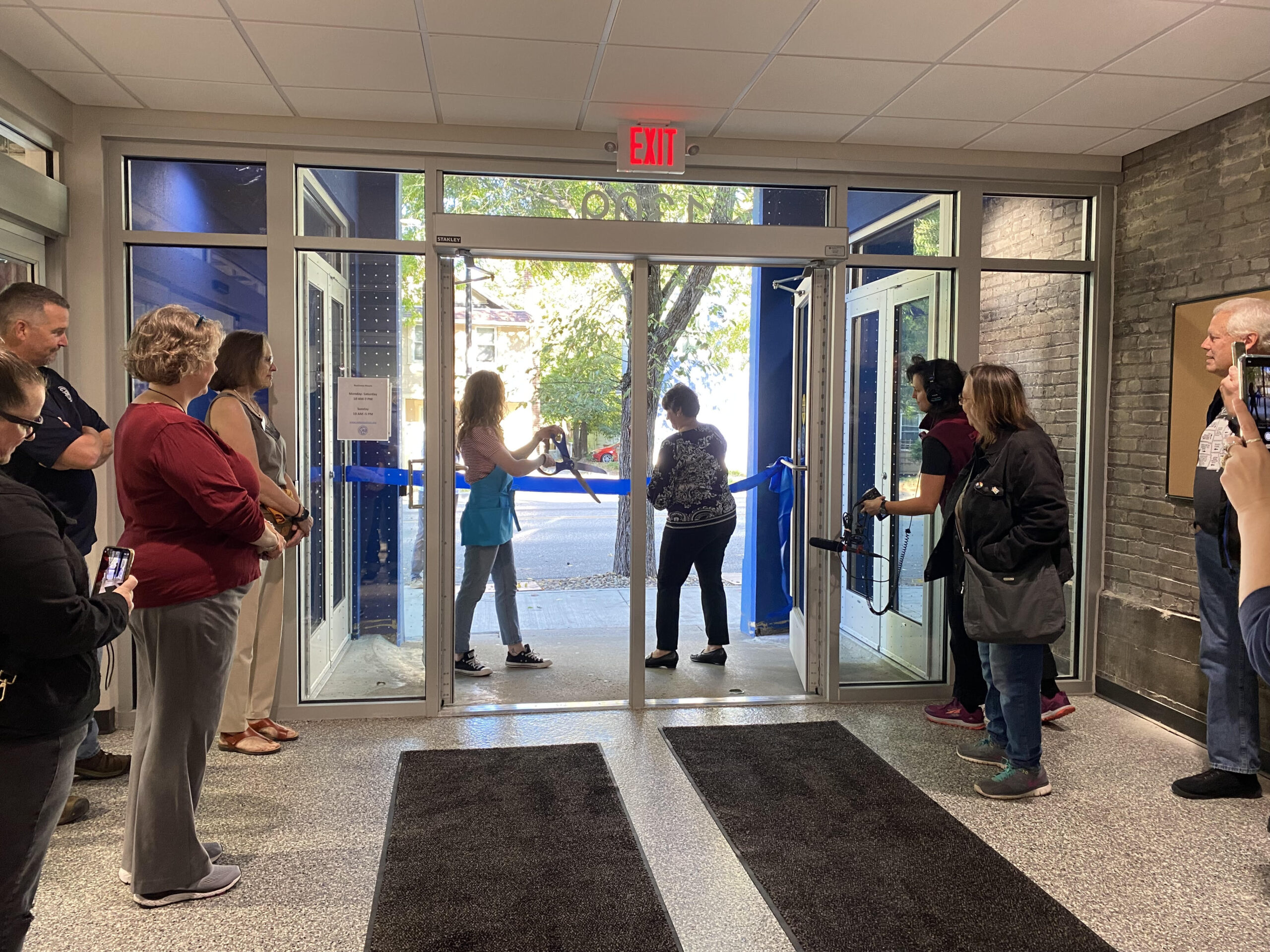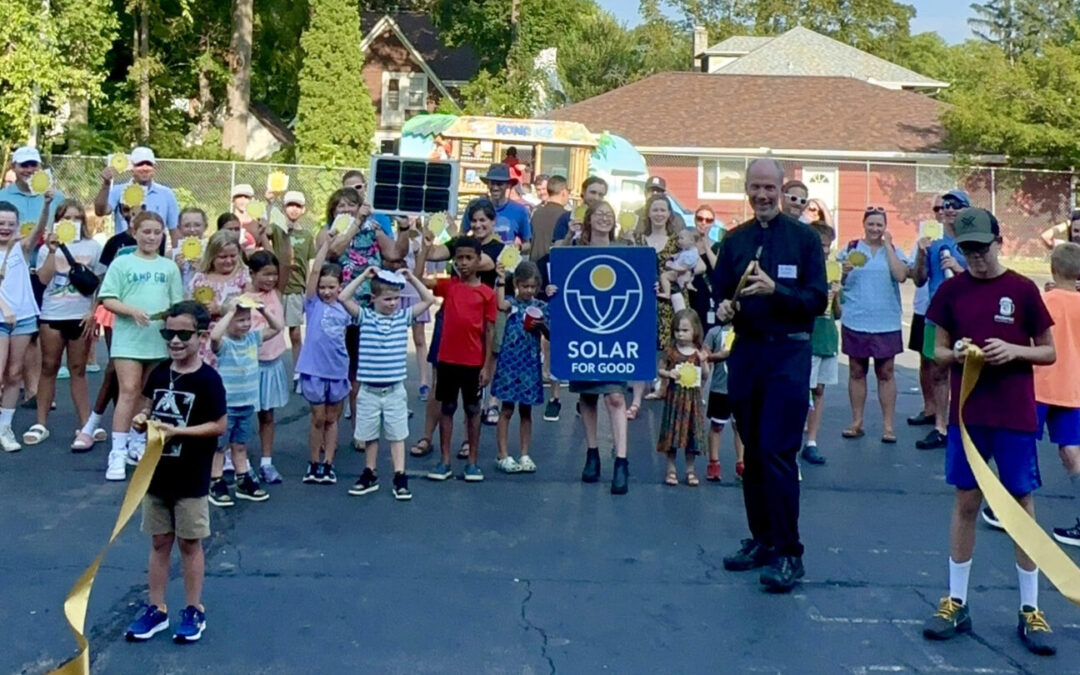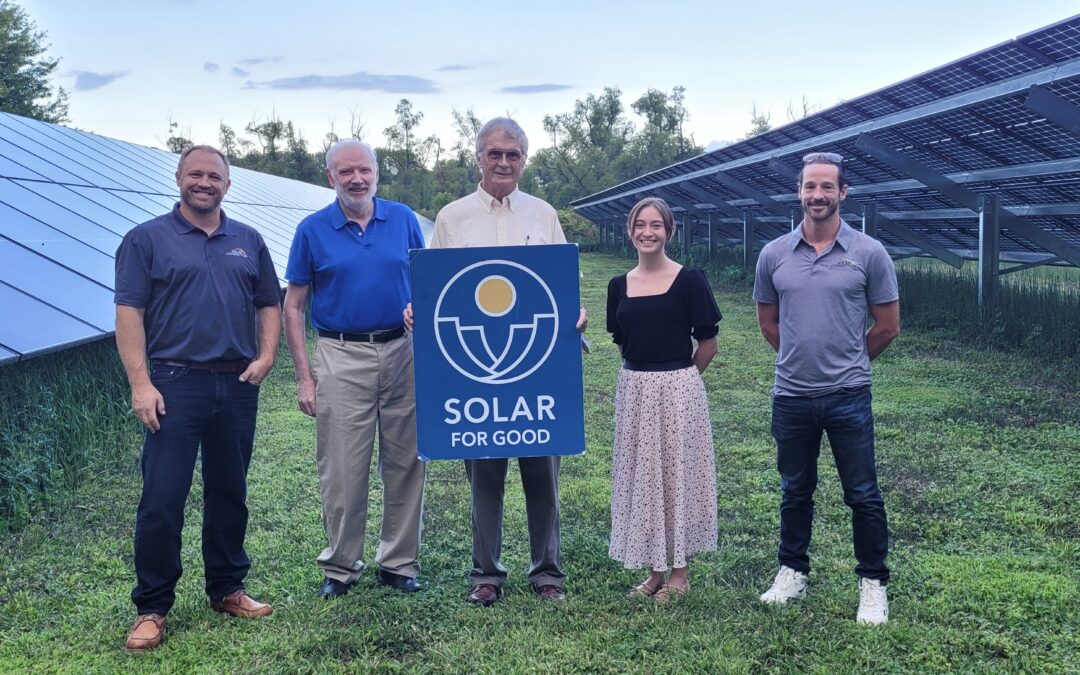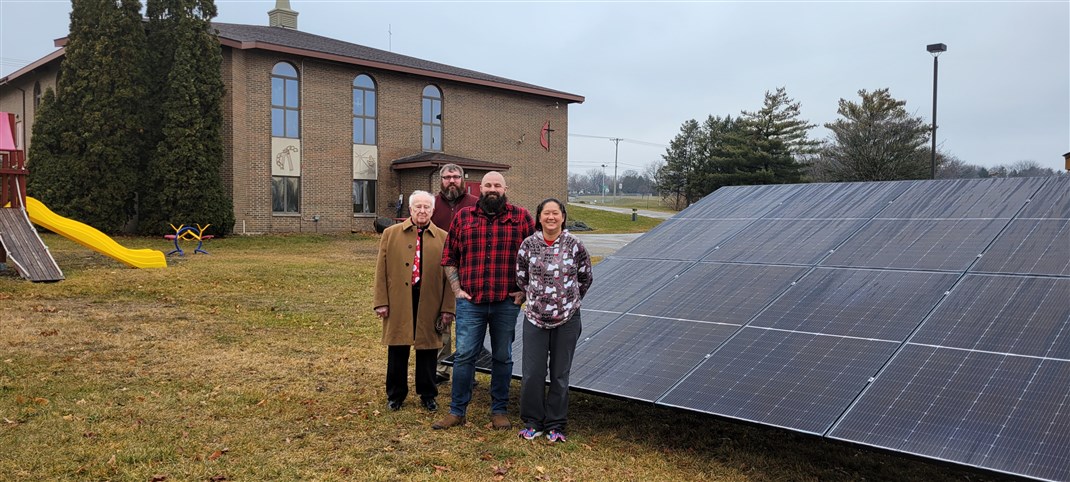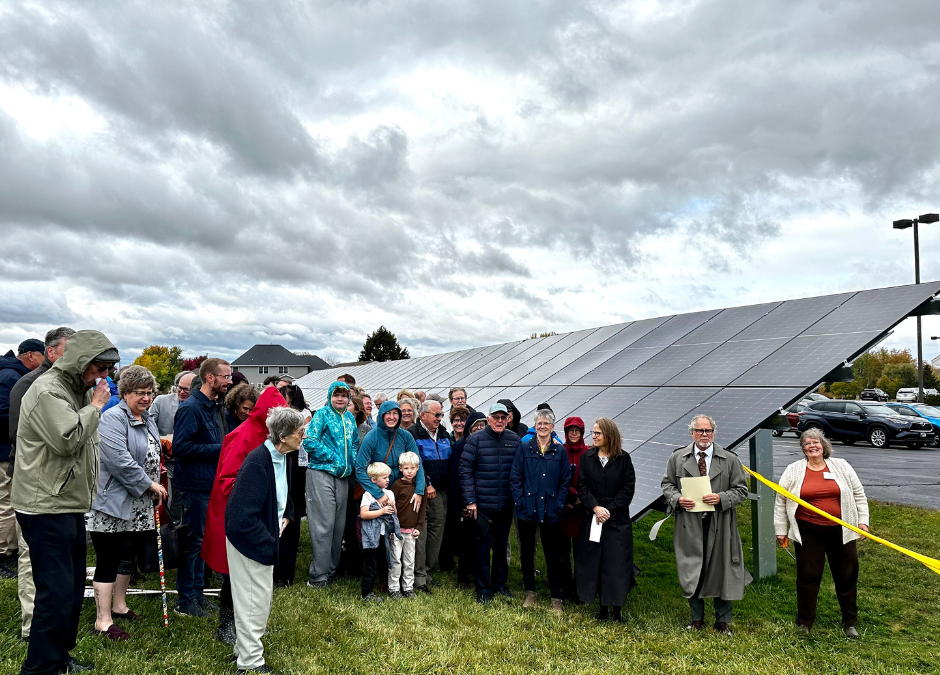
Solar Ignites Change for First Presbyterian Church
On Sunday, October 13, 2024, First Presbyterian Church hosted a ribbon-cutting ceremony to celebrate its new 139.86-kilowatt solar array. This solar project is the largest system in Marshfield, Wisconsin, and is anticipated to offset 71.8% of the church’s electrical needs. Commissioned in September, the array has already produced 18,000 kilowatt hours of electricity, enough power to completely cover its electric bill for the month, and marks the first of many months to come where the church runs purely off of clean energy.
First Presbyterian Church is part of a collaborative network, Winnebago Presbytery, and is one of 28 congregations throughout Northeastern, Wisconsin. The church’s mission is to welcome “everyone to our faith journey, denying no one, regardless of their human condition, participation in church life. We are a sanctuary where people are accepted, included, and cared for as they are. As a community based on God’s love, we strive to serve our neighbors and the world.”
First Presbyterian Church’s journey into switching to clean energy began 21 years ago when the congregation chose to incorporate geothermal energy into its facilities. This form of energy production extracts heat from the ground to warm the facilities in colder months or provide cooling during hotter months. To continue its goal of further use of clean energy, the church turned to solar to enhance its efforts. When numerous forms of energy enhancements are combined, the impact of any one form of electrical generation is exemplified.
On Sunday, the congregation, Church leaders, Northwind Solar, the Couillard Solar Foundation, and RENEW Wisconsin joined for a breakfast celebration and to hear from keynote speakers who helped get this project completed. First Presbyterian Church’s Solar Lead Gilbert Nimm, explained how transitioning to clean energy not only impacts the immediate environment in Marshfield but is ubiquitous in creating positive change at a much larger scale.
“It became clear that there were tons and tons of carbon that we could stop from going into the atmosphere that affects people around the world,” Gilbert Nimm said, “We are very proud, you should all be proud that there are no fossil fuels being used in this facility.”
This solar project was completed thanks to the generous donations of the congregation through the capital campaign, “Reach for the Sun: Harnessing God’s Gift of Light”, an anonymous donor, Focus on Energy, and Solar for Good. Northwind Solar installed 260 panels at the location, each panel generating 540 kilowatts. Of the 260 panels, 129 were granted by the Couillard Solar Foundation in partnership with RENEW Wisconsin through Solar for Good.
First Presbyterian joins a community of nonprofits across the state of Wisconsin who are committed to taking on the challenge of actively working to conserve energy. Going solar through Solar for Good is a foundational step in becoming both more conscious of energy consumption and using clean energy to serve communities. The first month of energy production for First Presbyterian Church is just the start of a long road of reduced carbon emissions and savings that can be redistributed into programming that benefits the community.

